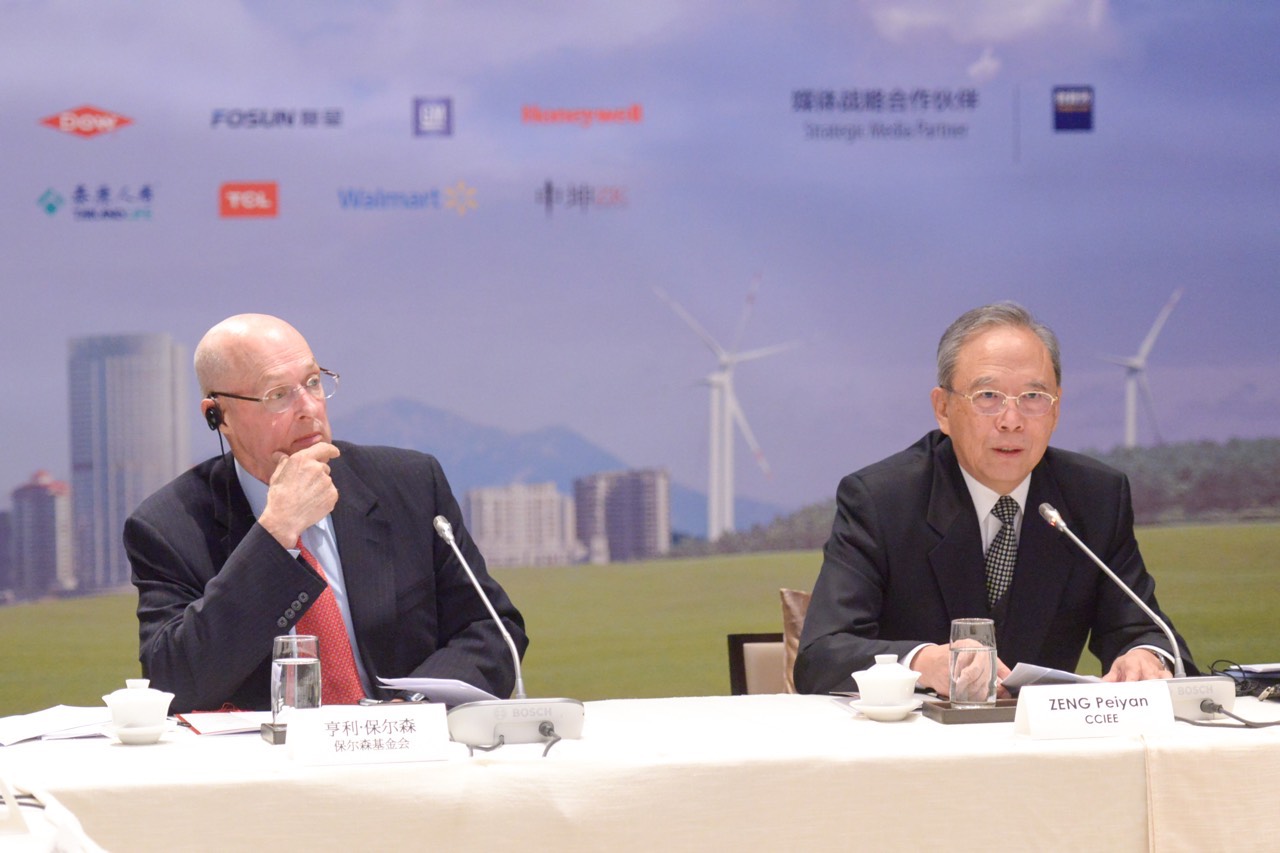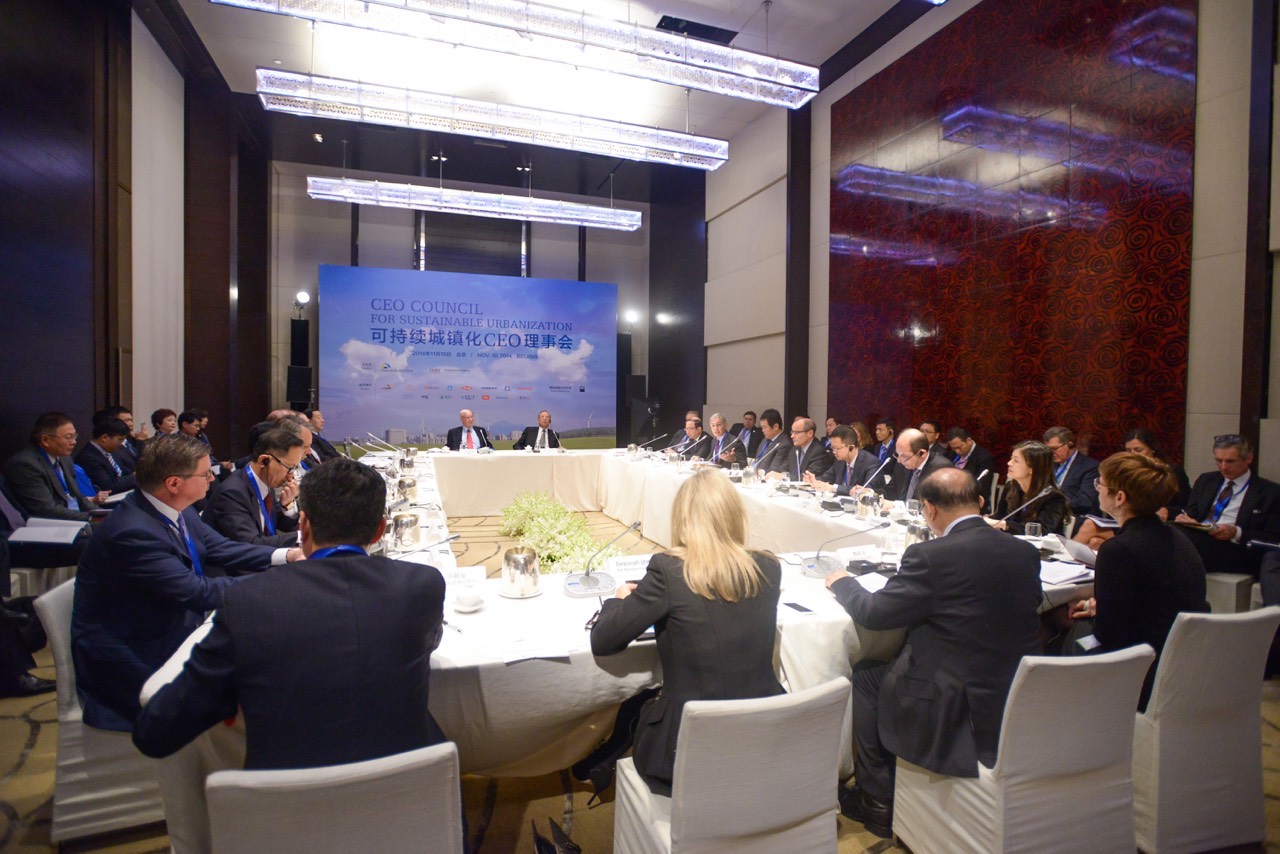On November 10, the Paulson Institute, in partnership with the China Center for International Economic Exchanges (CCIEE), launched the CEO Council for Sustainable Urbanization, comprised of leading Chinese and Western CEOs. The Council met in Beijing to form the first multi-industry, CEO-led, bilateral group to advance sustainable urbanization.
As China continues its transformative process of urban development, with more than 300 million Chinese citizens expected to move into cities by 2030, urban sustainability has become a defining global economic and environmental issue for the 21st century.
The mission of the Council, therefore, is to harness the power of business to advance sustainable urbanization through innovative corporate environmental practices, direct actions by companies and governments, and support for effective government policies.
The group will focus on five areas in which businesses are well-positioned to contribute to sustainability in urbanization: buildings, energy, water, transportation, and supply chains.
Coming out of the inaugural meeting, the CEO Council committed to action in 2015 focused on buildings and energy. The participants chartered action groups to work on increasing energy efficiencies in buildings to lower CO2 emissions and accelerating the use of renewable energies. The action groups—comprised of member company and external experts — will be launched immediately and will meet on a regular basis to ensure measurable progress against the Council’s goals.

The Council members agreed to take action via collaborative projects among members that can be scaled across China; advocate for effective policies and actions on sustainability standards; and illustrate best practices through case studies and research.
“Achieving more sustainable economic growth can have a significant positive impact on China’s economy and on our global environment, which is why this issue is a pillar of our work at the Paulson Institute,” said Henry M. Paulson, Jr., chairman of the Paulson Institute. “The aim of this joint CEO Council is to promote bilateral cooperation on this important issue and to harness leaders from the corporate sector to work together to help solve some of China’s greatest development challenges.”
The 16 founding companies of the Council—eight Chinese and eight Western—have a combined annual revenue of USD 1.4 trillion (RMB 8.6 trillion), with more than 6 million employees and over a billion customers throughout the world. Their collective reach puts these companies and their leaders in a strategically powerful position to help drive both corporate and consumer behavior in ways that will contribute to more sustainable development. The member companies include the world’s foremost retailer, brewer, automaker, e-commerce platform, utility, construction firm, and chemical manufacturer. Each company has already demonstrated commitment to conducting business responsibly.
The participating CEOs and companies are:
Mary Barra, Chief Executive Officer, General Motors
Carlos Brito, Chief Executive Officer, Anheuser-Busch InBev
Chen Dongsheng, Chairman, Taikang Life Insurance
David Crane, President and CEO, NRG Energy
David Cote, Chairman and CEO, Honeywell
Mark S. Hoplamazian, President and CEO, Hyatt Hotels Corporation
Huang Nubo, Chairman, Beijing Zhongkun Investment Group
Li Dongsheng, Chairman, TCL
Liang Xinjun, Vice Chairman and CEO, Fosun Group
Liu Zhenya, President and CEO, State Grid Corporation of China
Andrew N. Liveris, President, Chairman and CEO, The Dow Chemical Company
Jack Ma Yun, Chairman, Alibaba Group
Doug McMillon, President and CEO, Wal-Mart Stores
Virginia M. Rometty, Chairman, President and CEO, IBM
Yi Jun, Chairman, China State Construction Engineering Corporation
Zheng Zhijie, Vice Chairman and Executive Director, China Development Bank






